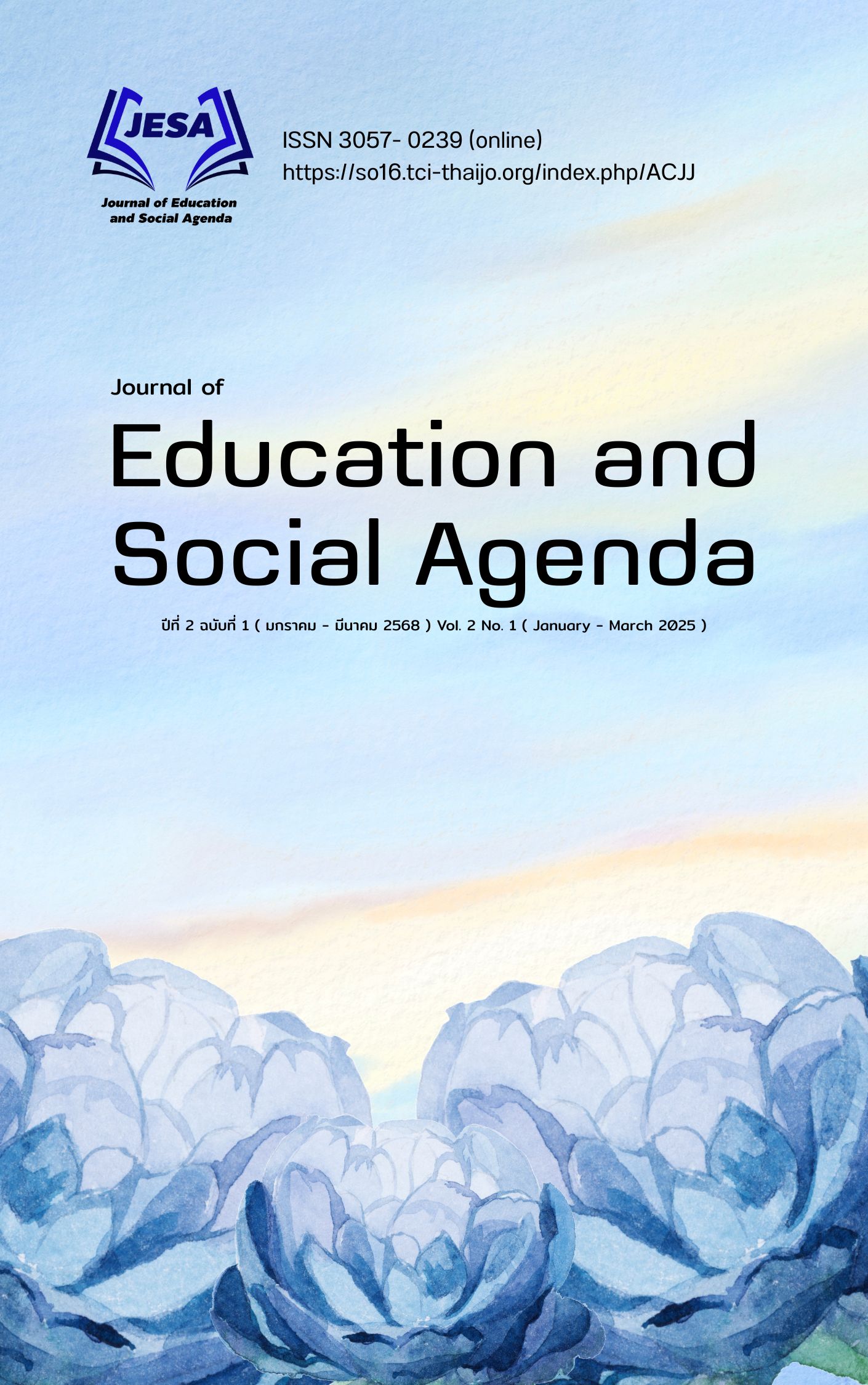Education as the Pillar of National Stability
Keywords:
National Development, Education, Stability, The NationAbstract
This academic article aims to examine the meaning of education and explore the relationship between education and national development, particularly in the dimensions of society and human resources. The academic article findings revealed that; Education is a process of developing intellectual capacity, ethical behavior, and personal capabilities, serving as a guide for leading a prosperous, flourishing life. It enables individuals to solve problems they encounter, whether personally or collectively, thereby attaining a more complete and fulfilling existence. Prior to the reign of King Chulalongkorn (Rama V), education or the pursuit of knowledge was generally reserved for the royal family and the ruling class. Their studies primarily focused on politics, governance, and religious teachings. In contrast, commoners received education related to agriculture and vocational skills necessary for sustaining livelihoods. Educational transmission took place mainly within palaces, temples, and traditional learning centers, each playing their respective roles in imparting relevant knowledge and wisdom. During the reign of His Majesty King Chulalongkorn (Rama V), His Majesty introduced visionary educational reforms. He graciously ordered the establishment of schools to provide the general populace with greater and more equitable access to formal education. Notably, he emphasized the importance of cultivating both wisdom and moral virtue among Siamese citizens. Intellectual development, in his view, must be coupled with ethical conduct, kindness, and compassion. Thus, education plays a vital role in the development of physical, intellectual, emotional, and moral faculties. It aims to shape individuals into knowledgeable, competent, and virtuous persons who can be self-reliant and contribute meaningfully to others, society, and the nation as a whole. It can therefore be asserted that education is the foundation of national stability. A well-educated populace strengthens families, communities, and the nation, as knowledge becomes a key driver in national development.
References
กัญญภัค แมกกี้. (2561). ปัญญาในพุทธปรัชญาเถรวาท. วารสารปรัชญาปริทรรศน์, 23(1), 114-123.
คำแถลงนโยบายของคณะรัฐมนตรี นางสาวเเพทองธาร ชินวัตร นายกรัฐมนตรี แถลงต่อรัฐสภา. (2567, 12 กันยายน). ราชกิจจานุเบกษา. เล่มที่ 141 ตอนพิเศษ 251 ง, หน้า 1-64.
ประกาศ เรื่อง แผนพัฒนาเศรษฐกิจและสังคมแห่งชาติ ฉบับที่ 13 (พ.ศ. 2566-2570). (2565, 1 พฤศจิกายน). ราชกิจจานุเบกษา. เล่มที่ 139 ตอนพิเศษ 258 ง, หน้า 1-149.
พระมหาเอกพันธ์ วรธมฺมญฺญู (มะเดื่อ). (2567, 31 กรกฎาคม). การศึกษา คือ ความมั่นคงของชาติ. (สุทธิพงศ์ เสมสูงเนิน, ผู้สัมภาษณ์)
พระราชบัญญัติการศึกษาแห่งชาติ พ.ศ. 2542. (2542, 19 สิงหาคม). ราชกิจจานุเบกษา. เล่ม 116 ตอนที่ 74 ก. หน้า 1-23.
ภูวดล ศิริพงษ์. (2564). พระบรมราโชบายด้านการศึกษากับการพัฒนาชุมชนอย่างยั่งยืน. วารสารทหารพัฒนา, 45(1), 1-10.
รอย อิงคไพโรจน์. (2567, 30 สิงหาคม). การศึกษา คือ ความมั่นคงของชาติ. (สุทธิพงศ์ เสมสูงเนิน, ผู้สัมภาษณ์)
ราชบัณฑิตยสถาน. (2556). พจนานุกรม ฉบับราชบัณฑิตยสถาน พ.ศ. 2554. กรุงเทพฯ : นานมีบุ๊คส์.
สำนักงานเลขาธิการสภาการศึกษา. (2560). แผนการศึกษาแห่งชาติ พ.ศ. 2560 - 2579. กรุงเทพฯ : บริษัท พริกหวาน กราฟฟิค จำกัด.
อุทัย ภู่เจริญ. (2564). การศึกษาสร้างคน คนสร้างประเทศชาติ. วารสารมหาจุฬาคชสาร, 12(1), 25-33.
Downloads
Published
How to Cite
Issue
Section
License
Copyright (c) 2025 Asia Connect Journal

This work is licensed under a Creative Commons Attribution-NonCommercial-NoDerivatives 4.0 International License.
This article is published under a Creative Commons Attribution-NonCommercial-NoDerivatives 4.0 International License (CC BY-NC-ND 4.0), which allows others to share the article with proper attribution to the authors and prohibits commercial use or modification. For any other reuse or republication, permission from the journal and the authors is required.


